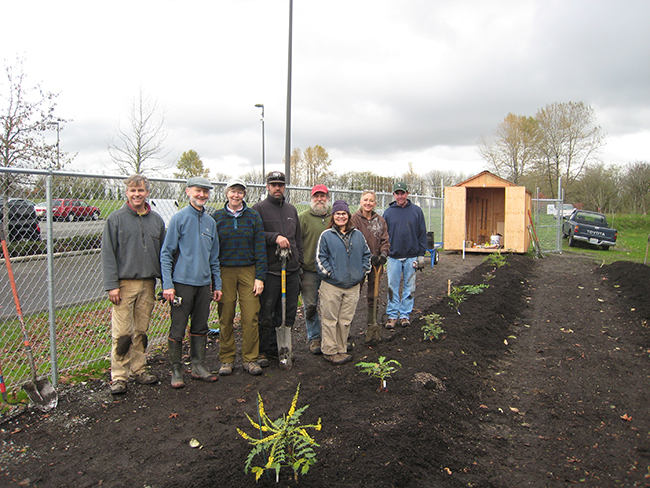Pacific Northwest Mahonia Evaluation Project

If you visit the south end of the South Seattle College’s campus, you’ll notice a field of plants surrounded by a chain-link fence with a sign that states, “WSDA Department of Agriculture Research Plot, Authorized Personnel Only!” What is this?
What you see is the Pacific Northwest Mahonia Evaluation Project—the brainchild of Landscape Horticulture Instructor Randall Hitchin. Its purpose is to evaluate the landscape value of about 90 species and cultivars of the plant genus Mahonia. While most people know Mahonia as Oregon-grape, the genus includes about 100 species native to western North America and east Asia. Only three are native to Washington state. Members of the east Asian group typically inhabit moist, shaded forest environments while species of the North American group are generally found in drier and more open habitats, including forest edge, chaparral, and desert. Most of the Mahonia species and cultivars are unknown in Pacific Northwest gardens, but they show great potential for the region’s nursery and landscape industry.
This research is supported by a grant from the Washington State Department of Agriculture (WSDA)—Nursery Research Funding and is taking place on South’s campus in collaboration with the college’s Landscape Horticulture Program. The plants will be evaluated for six years. Then the trial plants will go to South’s Arboretum, giving it probably the most extensive collection of Mahonia species and cultivars of any botanic garden in the nation!
The Mahonia project is indebted to the many volunteers who have helped with planting, maintenance, data collection, and more. Volunteers have included current and former Landscape Horticulture students, WSU Master Gardeners, and teams from Kubota Gardens, Amazon, Microsoft, and University of Washington.
Learn more about this project and the dates of upcoming volunteer work parties.